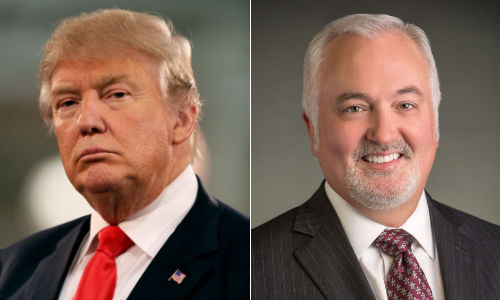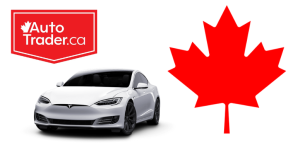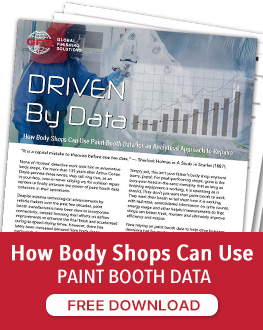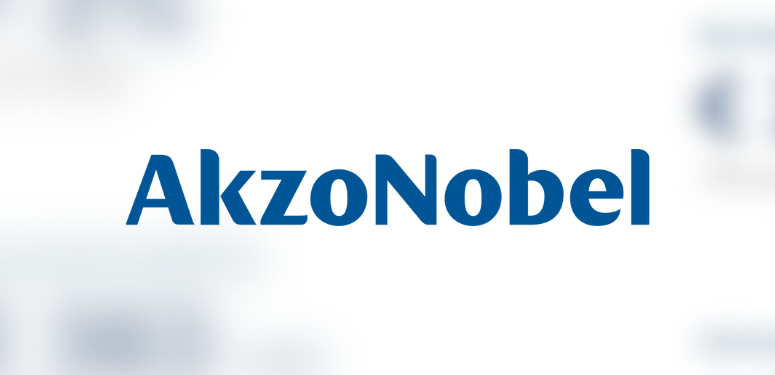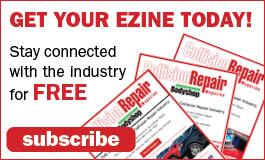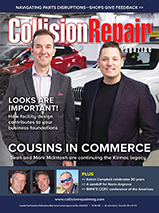By Jeff Sanford
Toronto, Ontario — February 20, 2017 — Tuesday Ticker keeps you up to date on the financial news from companies in the collision repair sector and the larger automotive economy. This week we report on talks for PSA Group to buy GM’s European business, year-end results from AkzoNobel, expected mergers in the insurance industry and much, much more!
– The global OEM sector may be due for a shake up. General Motors and French automaker PSA Group said last week they are in talks that could result in PSA buying GM’s European auto operations. GM wold sell its money-losing Opel and Vauxhall operations to PSA, which owns Peugeot and Citreon. The move would catapult PSA into the number two auto group in Europe with a 16.3 percent share of the EU passenger car market.
In the wake of the announcement shares in PSA gained 3.7 percent in value, while GM stock was up 3.5 percent. Fiat Chrysler CEO Sergio Marchionne has been campaigning for a year now for GM to combine with Chrysler. Analysts note that selling Opel would be, “… the most dramatic demonstration yet of Chief Executive Mary Barra’s strategy of putting profitability and returns on invested capital ahead of market share.” Barra has pulled GM out of countries where the company is losing money, such as Russia and Indonesia.
– AkzoNobel published its fourth quarter and full-year 2016 results last week. The company enjoyed record profitability and a growth in volume, but revenue was down 4 percent (partly due to unfavorable currency trends), causing the stock to sell off slightly in the wake of the announcement. Nevertheless, adjusted earnings were up 3 percent to €1,502 million, or about $2.09 billion CAD. The company managed to lower costs over the year, leading to the rise in adjusted earnings. The total dividend proposed for 2016 will be €1.65 per share ($2.30 CAD).
In 2017 AkzoNobel anticipates “positive developments” in Europe, the Middle East, North America and Asia. The company hopes the Latin America market will stabilize, though “some economic and political uncertainty is expected to remain.” The company also said it will take “appropriate measures” to deal with higher raw material prices in an inflationary environment.
“We achieved record levels of profitability in 2016 and are making further steps in delivering on our strategy of continuous improvement and growth,” said CEO Ton Büchner in a press release. The release also noted that AkzoNobel’s Vehicle Refinishes business launched its Colorvation digital technology, a “… unique system to increase speed and accuracy in colour matching for body shops, maximizing productivity and profitability.” AkzoNobel will also continue with its multi-year program to transform its global functions into “a standard operating model” to better support the business. In the fourth quarter of last year AkzoNobel acquired BASF’s Industrial Coatings business. This division is expected to generate sales of around €280 million in 2017.
– 3M announced it increased the dividend paid on its stock by 6 percent, bringing the overall yield on the stock to 2.60 percent. According to a report, “3M has maintained a solid three-year dividend growth rate 11.4 percent It currently ranks fourth in dividend yield within the large cap services and conglomerates category. The quarterly dividend for the March payment will be $1.175 versus the prior year rate of $1.11 per share.”
– Boyd Group Income Fund announced last week that its cash distribution for the month of February 2017 will be $0.043 per trust unit. The distribution will be payable March 29, 2017 to unitholders of record at the close of business on February 28, 2017.
Related Market Notes
– Insurance companies have been reporting strong year-end financials. Equitable Life of Canada had an outstanding year in 2016. According to a report the company “… [surpassed] previous records on almost all financial fronts and achieving several significant milestones.” The company grew earnings by 49 percent, to $80 million from last year’s net income of $53.8 million. In 2016 the company also achieved a new high of $1.1 billion for premiums and deposits and $3.7 billion in assets under administration.
– Insurance company Wawanesa will pay $775-million to buy up High River, Alberta-based Western Financial Group and Western Life Assurance. The Winnipeg-based mutual insurance company said Thursday that it would make the acquisitions through its subsidiary Trimont Financial. The deal is the biggest in Wawanesa’s 121-year history. Wawanesa now has more than $9-billion in assets and two million customers across the country.
“More mergers are expected in the coming years as the more than 200 providers of home, auto and business insurance in Canada fight for market share and brand recognition,” according to a report.
Desjardins had bought Western Financial Group for $440-million in 2010 as part of that company’s mission to expand beyond its traditional home in Quebec. But a report notes that when Desjardins acquired the Canadian arm of State Farm Insurance in 2014, “… the company’s priorities changed.”
The COO of Desjardins was quoted as saying about Western that, “We felt that to optimize what could be done with Western Financial Group would require a lot of IT investment, a lot of focus from us, a lot of effort … these efforts, and these dollars, were probably better spent into our current distribution channel.” The transaction is expected to close in the third quarter of 2017.
– A report notes that car loans to subprime borrowers in the U.S. have soared to levels not seen since 2009 in the wake of the onset of the Great Recession. Some worry current record auto sales are being propped up by low interest rates and a, “… perpetual loosening of auto lending standards with terms being stretched to the max and a wave of leases, all of which have allowed the American consumer to trade up to more expensive vehicles while maintaining low monthly payments,” according to a report. But with a recent uptick in interest rates and a flood of lease returns driving down used cars prices, “… the tailwinds that have propelling auto sales to record highs over the past several months look set to change course.”
– Whatever the longer-term outlook, many still have confidence in the auto sector. An exchange-traded fund that tracks the performance in the auto sector, The First Trust NASDAQ Global Auto Index Fund, or CARZ, “… is higher by nearly 3.9 percent in 2017 and robust sales are playing a pivotal role in the recent success for the lone exchange traded fund dedicated to the auto industry.” According to analysts who follow the industry, the sector is enjoying a period in which, “Selling costs are also rising, but at a much reduced rate compared to input costs.”
– Sales of diesel cars in Germany have fallen as a percentage of total vehicles sold in the wake of the emissions scandal. That’s no surprise. The problem now, according to a report, is that, “… some automakers are carrying billions of euros of diesel vehicles on their balance sheets whose value could fall much more than anticipated. BMW is particularly exposed,” as it has a large car financing operation and sells lots of diesels. In an age when many drivers lease their cars, “… it’s up to the finance company (typically a subsidiary of the carmaker) to find another buyer when the customer trades in the vehicle after three years.”
– The president of a Canadian auto company has said that if the US goes ahead and rolls back fuel-economy regulations that Canada needs to follow the move and change regulations in this country. US President Donald Trump has signalled that, “… he’ll relax the corporate average fuel economy (CAFE) regulations, which currently aim to boost automakers’ fleet-wide fuel economy to 54.5 miles per gallon—approximately 4.3 litres per 100 kilometres—by 2025, up from 25.2 miles per gallon in 2016.” If a loosening of the standards occurs, Canada, which “has long harmonized its auto emissions regulations with the United States,” may follow suit. Having separate regulations on both sides of the border is “risky,” said Steve Carlisle, President of General Motors of Canada. “Part of what you’d want to retain in the current trade relationship is harmonization in regulation … We as an industry would advocate very strongly to stay harmonized.”



